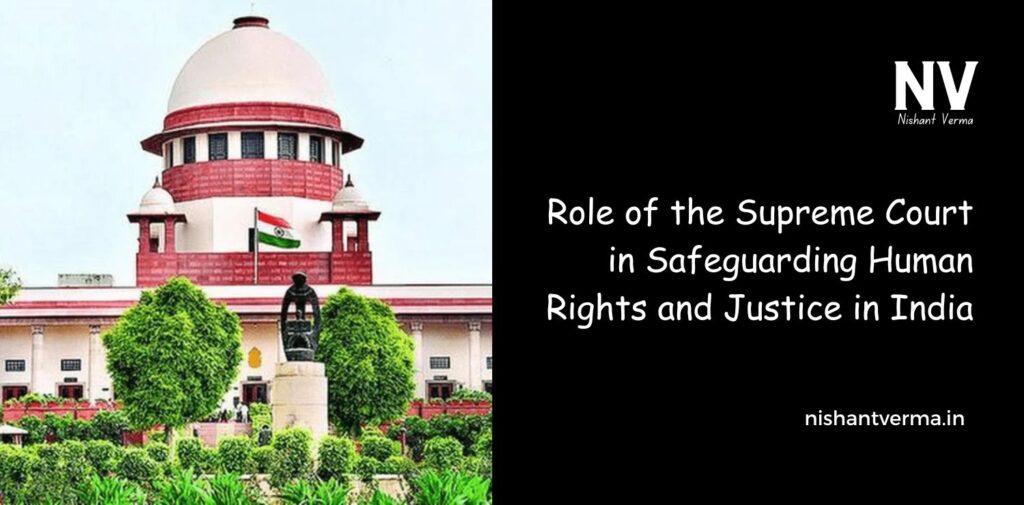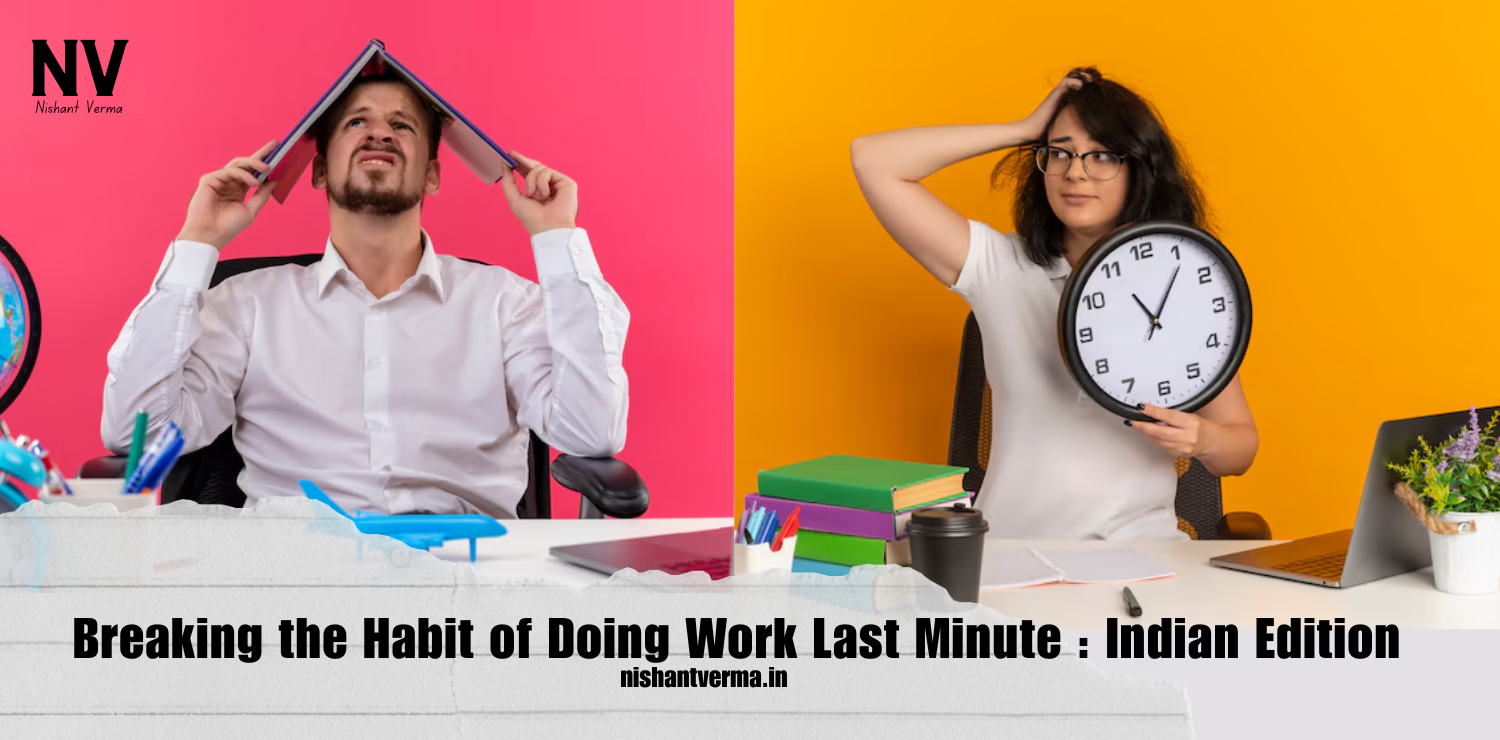India is a country with a rich history, diverse culture, and a strong legal system. One of the most important institutions that protect the rights of citizens and ensure justice in the country is the Court of India. It plays a crucial role in safeguarding human rights and ensuring that everyone is treated fairly, no matter who they are or where they come from. In this article, we will explore how the Supreme Court of India works to protect human rights and justice.
What is the Supreme Court?
The Supreme Court of India is the highest court in the country. It is like the final judge in legal matters and has the power to make decisions on cases that are of great importance to the nation. The Supreme Court was established in 1950, right after India became a republic, and is based in New Delhi.
The Court’s primary job is to interpret the law and the Indian Constitution, which is the supreme law of the land. This means that the court looks at whether laws made by the government are fair and in line with the rights guaranteed by the Constitution. It also resolves disputes between states, between the central government and states, and ensures that justice is delivered fairly to everyone.
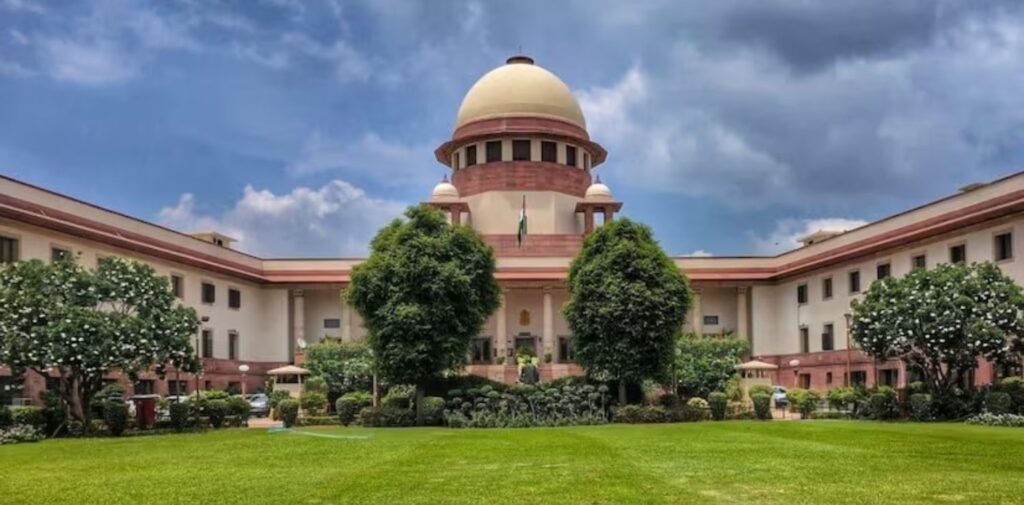
What Are Human Rights?
Human rights are the basic freedoms and protections that every person should have, no matter where they live. These include rights like freedom of speech, right to life, right to education, right to equality, and many others. In India, the Constitution guarantees these rights to every citizen. However, sometimes these rights are threatened or violated, and that’s when the Supreme Court steps in to protect them.
The Supreme Court is like a guardian that makes sure that the government and other institutions follow the rules and do not harm the rights of the people. It ensures that justice is served and that everyone is treated equally before the law.
How Does the Supreme Court Protect Human Rights?
The Supreme Court has played an important role in protecting human rights in India through its judgments, decisions, and interpretations of the Constitution. Here are some of the ways in which the Supreme Court works to safeguard human rights:
Judicial Review: Ensuring Fairness of Laws
One of the main functions of the Supreme Court is judicial review. This means that if someone believes that a law or government action goes against the Constitution or violates their human rights, they can approach the Supreme Court to challenge it. The Court then looks at whether the law is fair and just.
For example, if a law is made that discriminates against a particular community or group of people, the Supreme Court can strike it down and declare it unconstitutional. This helps ensure that no law goes against the basic human rights of citizens.
Public Interest Litigation (PIL): Access to Justice for All
The Supreme Court introduced a special way for people to approach the court called Public Interest Litigation or PIL. PIL allows any citizen or organization to file a case in the Supreme Court on behalf of those who cannot approach the court themselves. This has helped many people, especially those from poor or marginalized communities, to seek justice.
For example, if a company is polluting the environment or if a group of people is being treated unfairly, a PIL can be filed, and the Court will hear the case. This ensures that even people who cannot afford expensive lawyers or do not know how to approach the court can still get justice.
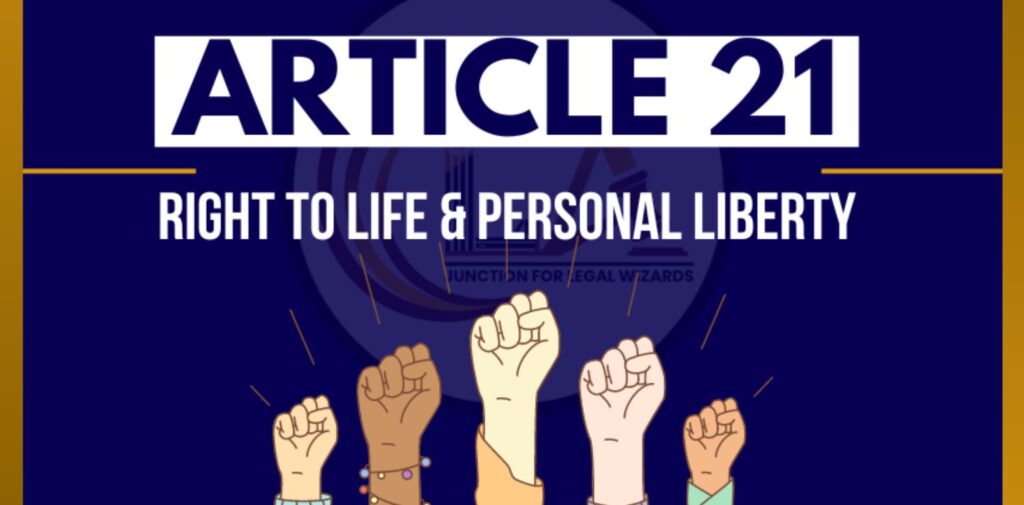
Protecting the Right to Life and Personal Liberty
The right to life and personal liberty is one of the most important human rights in India, and the Supreme Court has worked hard to protect it. This right is mentioned in Article 21 of the Indian Constitution, which says that “No person shall be deprived of his life or personal liberty except according to the procedure established by law.”
Over the years, the Supreme Court has made several important decisions to protect this right. For example, in a landmark judgment in Maneka Gandhi v. Union of India (1978), the Supreme Court ruled that the right to life does not just mean living but also includes living with dignity. This means that everyone should be able to live their life with respect, free from violence, and in a way that preserves their dignity.
Right to Equality: Fighting Discrimination
The Supreme Court has also played a key role in ensuring that everyone is treated equally before the law, regardless of their background, religion, or social status. Article 14 of the Constitution guarantees equality before the law.
For example, in the case of Indira Sawhney v. Union of India (1992), the Supreme Court upheld the importance of reservations for socially and economically disadvantaged groups, like Scheduled Castes, Scheduled Tribes, and Other Backward Classes. This helped to ensure that these groups received opportunities in education, jobs, and political representation to bring them on an equal footing with others in society.
The Supreme Court has also worked on cases involving discrimination against women, children, and people with disabilities, ensuring that they get equal treatment and protection under the law.
Right to Freedom of Speech and Expression
The freedom of speech is another important human right that the Supreme Court has protected. This right allows people to express their opinions, criticize the government, and participate in discussions without fear of punishment. However, the Supreme Court has also made it clear that this freedom is not absolute and must be used responsibly.
For example, the Supreme Court has upheld the right to protest peacefully, even if the protest is against government policies, as long as it does not lead to violence or harm to others. The Supreme Court has played an important role in ensuring that the voices of the people are heard, especially in matters that affect their lives.
Protecting the Environment and Social Rights
The Supreme Court has not only protected traditional human rights but has also been at the forefront in protecting the environment and social rights. The Court has ruled on several occasions that protecting the environment is a basic human right, as a clean environment is essential for the well-being and health of people.
In cases related to pollution, deforestation, and illegal mining, the Supreme Court has stepped in to ensure that the rights of people to live in a clean and safe environment are protected. This has led to important decisions that have saved rivers, forests, and wildlife from destruction.
Fighting Against Cruel and Inhuman Practices
The Supreme Court has also been instrumental in fighting against cruel and inhuman practices in India. For example, it has worked on cases involving child labor, bonded labor, and sexual exploitation, ensuring that people who suffer from such abuse are protected and given justice.
In the case of Vishaka v. State of Rajasthan (1997), the Supreme Court created guidelines to protect women from sexual harassment at the workplace, which was an issue that had not been properly addressed before.
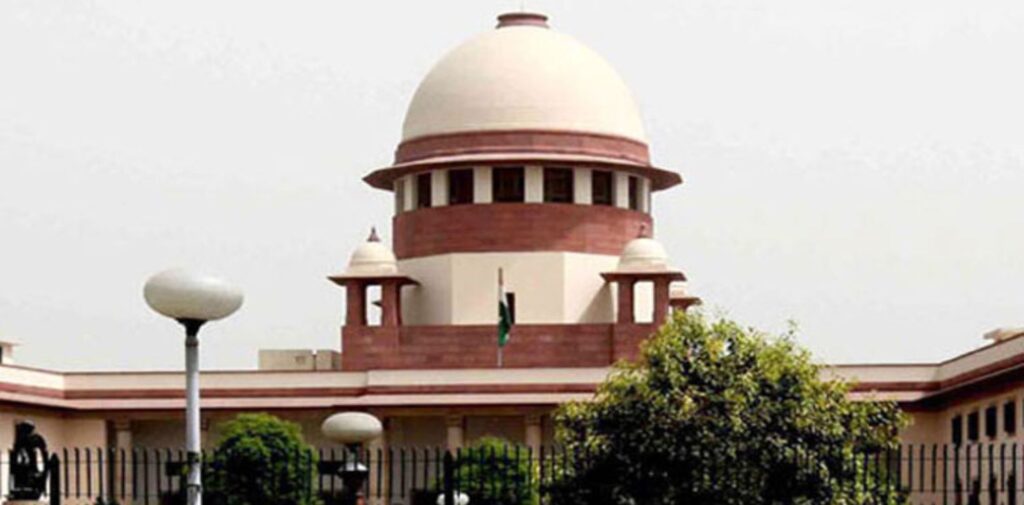
Landmark Decisions by the Supreme Court
The Supreme Court has made several important decisions that have shaped the course of human rights and justice in India. Here are a few landmark decisions:
- Kesavananda Bharati v. State of Kerala (1973): The Supreme Court ruled that the basic structure of the Constitution cannot be changed. This decision has protected the core values of the Indian Constitution, including human rights and justice.
- Maneka Gandhi v. Union of India (1978): This case expanded the right to life and personal liberty, making it clear that every citizen has the right to live with dignity.
- Naz Foundation v. Government of NCT of Delhi (2009): The Supreme Court decriminalized consensual same-sex relations, helping to protect the rights of the LGBTQ+ community in India.
- Right to Privacy Judgment (2017): The Supreme Court declared the right to privacy as a fundamental right, protecting citizens from unlawful government actions and surveillance.
Conclusion
The Supreme Court of India plays an essential role in safeguarding human rights and ensuring justice for all. Through its judgments and decisions, it has protected the rights of the most vulnerable groups in society, ensured that laws are fair, and created a system where every citizen can seek justice. The Supreme Court is not just the highest legal authority in India; it is a guardian of the Constitution, ensuring that the basic rights and freedoms of every individual are protected.
By doing so, the Supreme Court helps make sure that India remains a place where justice, equality, and human dignity are respected by everyone, regardless of who they are. Its role in shaping and protecting the values of human rights is vital to the continued growth and progress of India as a democratic nation.

